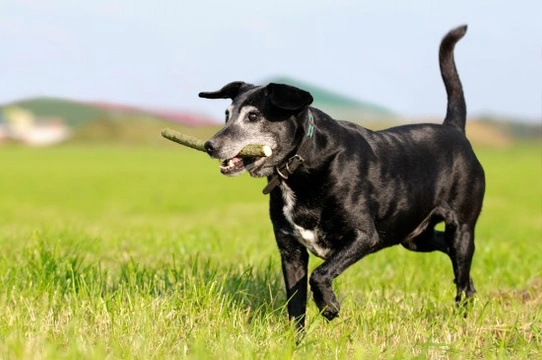Pets
Pets for studWanted petsBreedersAccessories & services
Knowledge hub
Support
Support & safety portal
Does Nutrition Play a Role in Treating Kidney Disease in Dogs
Sadly when a dog develops a chronic kidney disease, it is an irreversible progressive condition where their kidneys fail to function as they should. As the condition worsens, a dog becomes very ill and ultimately this causes death. However, chronic kidney disease is more often seen in older dogs although it can occur at any stage of a dog's life. With this said, if the condition is picked up early enough and although it is a progressive disease, if a dog is given the appropriated treatment, it can relieve the discomfort and prolong their lives for months or even years.
What Treatment's Involve
The normal treatment dogs with the condition are given is to control their blood pressure and to stem the loss of protein through their urine. Because there is an imbalance of calcium and phosphorus which is caused by hyperparathyroidism, many dogs die once the condition has been diagnosed. However, much research has been carried out which shows that if dogs that are fed a special diet, there is a much better chance of managing the condition and therefore prolonging a dog's life. As such vets today, recommend feeding a therapeutic renal diet to a dog that is suffering from the condition.
The Important Nutrients in a Therapeutic Renal Diet
When it comes to the type of nutrients needed in a therapeutic renal diet, these are as follows:
Phosphorus
Phosphorus is an important mineral that's crucial to all living cells found in the body. It is present mostly in teeth and bones although to a lesser extent it can be found in soft tissues as well as extracellular fluids and the mineral is passed out of the body through urine. Research into chronic kidney disease has shown that if phosphorus is restricted from a diet it does increase their survival rate and this is especially true when dogs are in Stage 3 of the disease.
Protein
When it comes to protein, there are two schools of thought with some people thinking that a diet containing less protein would mean there is less nitrogenous waste which in turn means less stress put on the kidneys to excrete it. The lower phosphorus levels as a result of less protein in a diet is, therefore thought to be beneficial.
However, if good quality protein is increased or fed in normal amounts, this can help a dog maintain its lean body mass which in turn allows them to remain strong with good coordination and a healthy immune system. It is thought that as long as the intake of phosphorus is restricted, no adverse effects have been reported on the life expectancy of a dog suffering from the condition. Therefore, the rule of thumb is to feed a good quality protein in a dog's diet but to restrict all phosphorus levels.
Omega-3 Polyunsaturated Fatty Acids
These essential fatty acids can not be formed in the body but are needed in a dog's diet. One of the most important is the eicosapentaenoic acid (EPA) and docosahexaenoic acid (DHA) which are omega-3 fatty acids. They play an important role when it comes to reducing any inflammation that may be present whilst at the same time reducing glomerular hypertension which in turn improves kidney function. The best source of Omega-3 polyunsaturated fatty acids is found in good quality fish oil.
Antioxidants
Antioxidants are valuable because they help neutralise free radicals which if not kept in check can cause cellular damage. The result of them going unchecked sees more harmful free radicals in the body. If a dog is fed a renal diet that contains omega-3 fatty acids as well as antioxidants, these when combined slow down the progression of chronic kidney disease than if they are fed on their own.
Fermentable Fibre
Fermentable fibre when added to the dog's diet helps the body excrete nitrogen through their faeces which means a dog can eat the right amount of good quality protein which helps them remain strong. A supplement such as beet pulp is recommended although other fermentable fibres like fructooligosaccharide and gum arabic also help promote the number of good intestinal bacteria and these in turn draw urea into the dog's faeces.
The Results of Studies in a Nutshell
There have been many studies in how diet can help dogs with chronic kidney disease and especially in the Stage 3 of the condition. They have shown that a well managed renal diet is far more beneficial at slowing down the progress of the disease and can therefore prolong a dog's survival time. The studies have shown that 70% of dogs when fed a well managed renal diet, live three time longer than dogs that are fed a normal maintenance diet.
However, dogs suffering with the condition should only be fed a renal diet when dehydration, vomiting and nausea have been bought under control. The problem being that if a dog feels ill when offered any new food, they may associated this new food to their illness which may end up putting them off eating what is a much better diet. A vet would be in the best position to recommend how to make the transition from your pet's normal diet to a recommended renal diet without causing your dog a further upset.



